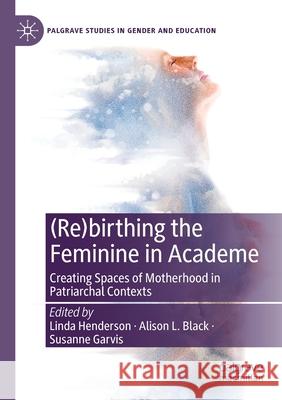(Re)Birthing the Feminine in Academe: Creating Spaces of Motherhood in Patriarchal Contexts » książka
topmenu
(Re)Birthing the Feminine in Academe: Creating Spaces of Motherhood in Patriarchal Contexts
ISBN-13: 9783030382131 / Angielski / Miękka / 2021 / 290 str.
(Re)Birthing the Feminine in Academe: Creating Spaces of Motherhood in Patriarchal Contexts
ISBN-13: 9783030382131 / Angielski / Miękka / 2021 / 290 str.
cena 562,23
(netto: 535,46 VAT: 5%)
Najniższa cena z 30 dni: 539,74
(netto: 535,46 VAT: 5%)
Najniższa cena z 30 dni: 539,74
Termin realizacji zamówienia:
ok. 22 dni roboczych.
ok. 22 dni roboczych.
Darmowa dostawa!
Kategorie:
Kategorie BISAC:
Wydawca:
Palgrave MacMillan
Seria wydawnicza:
Język:
Angielski
ISBN-13:
9783030382131
Rok wydania:
2021
Wydanie:
2020
Numer serii:
000769984
Ilość stron:
290
Waga:
0.38 kg
Wymiary:
21.01 x 14.81 x 1.7
Oprawa:
Miękka
Wolumenów:
01
Dodatkowe informacje:
Wydanie ilustrowane











